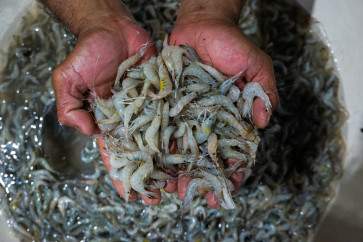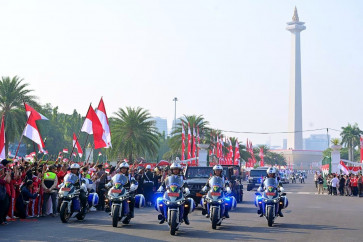Popular Reads
Top Results
Can't find what you're looking for?
View all search resultsPopular Reads
Top Results
Can't find what you're looking for?
View all search resultsFinance dispute may collapse REDD talks, Climate conference
Bickering over a financial mechanism may undermine a final decision on the operations of REDD projects at the 17th UN climate conference in Durban, South Africa
Change text size
Gift Premium Articles
to Anyone
B
ickering over a financial mechanism may undermine a final decision on the operations of REDD projects at the 17th UN climate conference in Durban, South Africa.
Countries have been at loggerheads at the conference as they decide whether market and offset mechanisms should be ruled out in REDD (Reducing Emissions from Deforestation and Forest Degradation) projects, which have been collectively regulated through mitigation efforts since the Cancun conference.
Led by developed countries, Indonesia, as well as several African countries, has been a proponent of these mechanisms, for they allow flexibility for industrialized countries to fulfill their emission reduction targets by shifting their carbon responsibility to developing nations.
Opposing parties said that this should not be allowed because it would place a heavier burden on developing countries to reduce emissions.
“We still want the market mechanism and we will try to push it at the ministerial meeting today,” said President Susilo Bambang Yudhoyono’s envoy for climate change, Rachmat Witoelar, on Friday.
There had been no result on the last minute talks as this article was submitted.
Despite being excluded from the commitment to reduce emissions in the Kyoto Protocol, developing countries had to adopt mitigation efforts under a “common but differentiated responsibility” principle.
The mitigation scheme, known as nationally-appropriate mitigation actions (NAMAs), included REDD projects.
Securing aid from Japan and Australia, Indonesia has been an enthusiast of the REDD negotiation.
The UN conference has reached agreements on forest emission references and forest reference levels, which means that countries are allowed to set mitigation programs based on their own standards, levels and capabilities.
The US, which has demanded transparency in the assessment of projects in the Green Climate Fund, has not objected to the terms in the REDD talks.
The dispute over financing would put the whole agreement at stake as the REDD scheme is being discussed as a package that would be included in the final text of the long-term agreement in Durban.
Indonesia REDD negotiator Nur Masripatin said that countries should be flexible for all possible
options.
“Indonesia wants all countries to be open to all options. Let’s leave out prejudice,” she said.
Despite its shortfall, Greenpeace forest politics campaigner Yuyun Indradi urged parties to conclude the REDD negotiation.
He said the partial agreements on forest references and levels would potentially lead countries to manipulate their emission efforts. The emerging impact of climate change, however, required a quick action.
“From Cancun, we will waste another year if parties fail to conclude the scheme,” he said.










